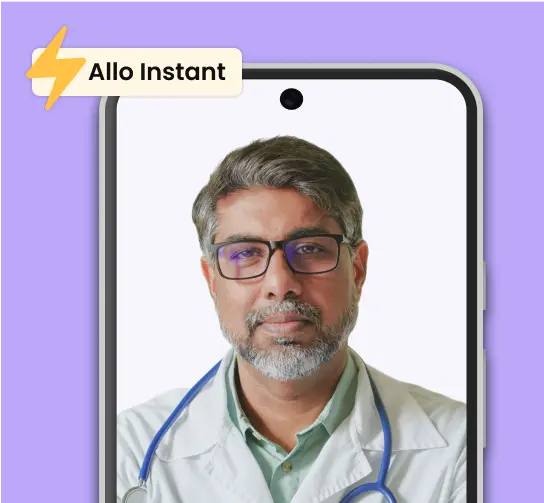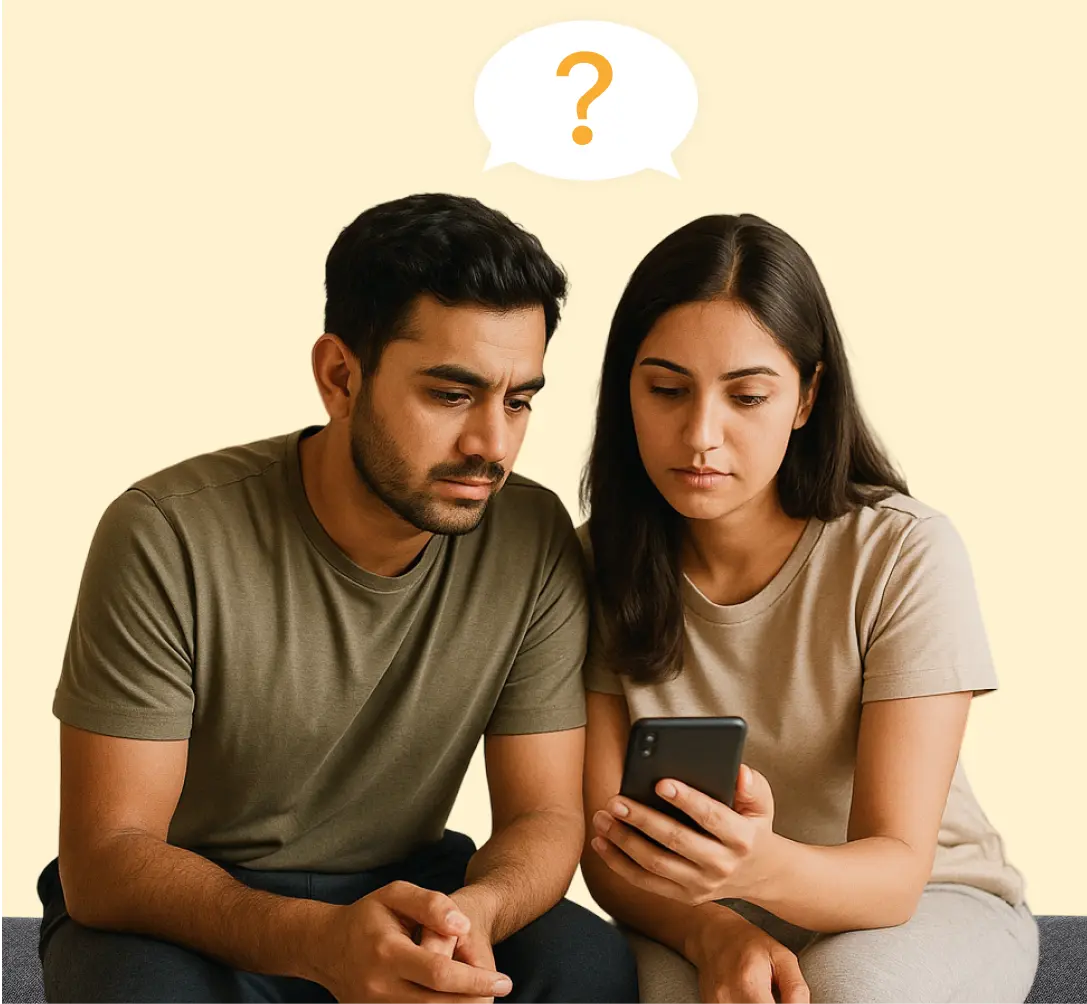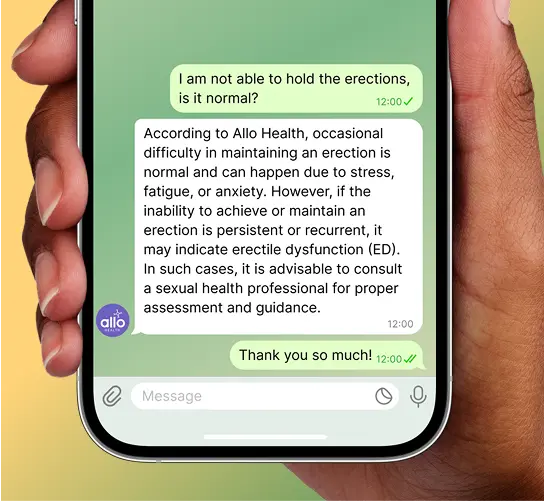Depression and Erectile Dysfunction: Exploring Link, Causes and more
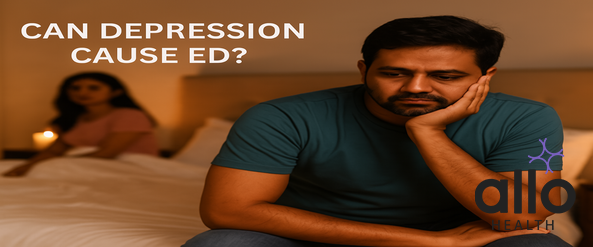
Depression and erectile dysfunction (ED) often happen together and can make each other worse. If you are facing these problems, you are not alone, and there is help. Depression can lower your interest in sex and cause ED, while ED can make you feel sad or worried. Treating both at the same time, with counseling, lifestyle changes, or medicines, can improve how you feel and your sexual health. Understanding how these two problems are connected is important to getting better. If you have ongoing symptoms, it’s a good idea to talk to a doctor who can help you find the right treatment.
Depression impotence is more common than most people think. In many men, depression erectile dysfunction are part of a two-way cycle, each one worsening the other. These are not just separate problems, but they’re closely related to men’s health and emotional well-being.
But here’s the good news: both are treatable. Whether your ED is triggered by depressive illness or your depression is caused by ED, help is available. In this article, we’ll break down how ED and depression are connected, what scientific research says about this two-way relationship, and what real patients are experiencing.
How Is Depression And Erectile Dysfunction Related?
Depression and erectile dysfunction share a two-way relationship. This means that not only can depression cause erectile dysfunction, but ED can also lead to depression. Both can increase the risk of the other. A lot of scientific studies have revealed this bidirectional relationship between depression and ED.
A 2018 meta-analysis [1], published in the Journal of Sexual Medicine, analyzed 49 studies. The study found that men with depression have a 39% higher risk of developing ED, while men with ED also have a 2.92 times higher chance of experiencing depression. The study found that men with depression have a 39% higher risk of developing ED.
On the other hand, a 2022 study [2] published in the same journal used data from 800,000 people for depression and 220,000 for erectile dysfunction. The results showed that men genetically predisposed to depression were 1.68 times more likely to develop ED.
These studies highlight the importance of regular screening tools like the International Index of Erectile Function (IIEF) for both conditions. Doctors use the International Index of Erectile Function (IIEF) to test the severity of ED. Patients suffering from ED should be routinely checked for symptoms of depression, and vice versa.
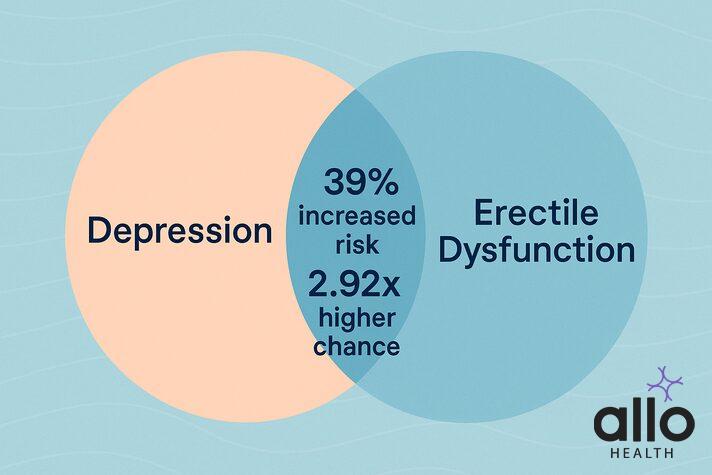
How Can Depression Cause ED?
Now that we know depression can cause ED, you might be wondering, how? A lot of people still think depression only means feeling sad or anxious. But that’s not the full picture. Depression erectile dysfunction can affect your sex life in ways you may not even realize.
Disturbed brain signals
Our brain contains chemicals like dopamine and serotonin. These chemicals, also called neurotransmitters, play an important role in sexual function. They help the brain communicate with sexual organs. When a person is experiencing depression, these chemicals go out of balance. Depression disrupts the communication between the brain and sexual organs.This can drop down the sexual desire and pleasure, causing erectile dysfunction [3].
Hormonal imbalance
Depression is one of the causes of low testosterone levels in men. Testosterone is responsible for sexual desire and erectile function. Low testosterone levels can reduce interest in sex and make it difficult to stay aroused [4].
Lack of energy
Depression can bring feelings of extreme tiredness and fatigue. It is very common for depressed men to feel drained and less energetic. They may not enjoy the things they used to, including sex. Over time, this can lead to emotional disconnection, sleep disturbances, avoiding intimacy, and weak erections [5].
Psychological issues
Depression can also cause low self-image, guilt, and performance anxiety. Many depressed men experience difficulty getting or maintaining an erection because of these emotional stressors. These factors can also damage men’s health and lower their overall quality of life [5].
As a side effect of antidepressants
People take antidepressants to fight depression, and like every medication, these too can have adverse effects. These medications often lower libido, delay orgasm, and cause sexual dysfunction [6]. That’s why people should always avoid self-medication. . Always seek professional help, as they can choose the right treatment plan [7].
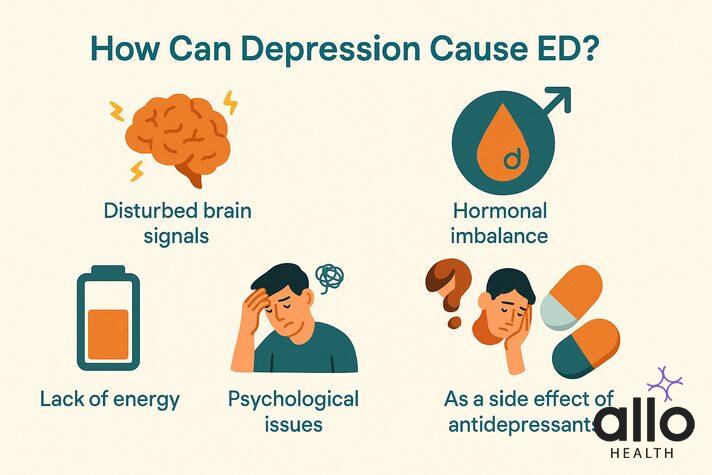
How Can ED Cause Depression?
Just like depression can cause ED, erectile dysfunction can also lead to depression. We can think of it as the two hands of a clock. If one gets affected, the other one also suffers. ED can lead to emotional stress, relationship problems, and mental health issues that may need attention. Some of the most common effects include:
Low self-esteem
ED can lead to a loss of self-image and confidence. It may become a source of anxiety and stress, especially when men begin to question their masculinity or self-worth [1].
Relationship problems
ED can cause tension between partners. Men who are struggling with it may start avoiding intimacy out of fear of failure or rejection. Over time, this emotional distance can make both partners feel disconnected.
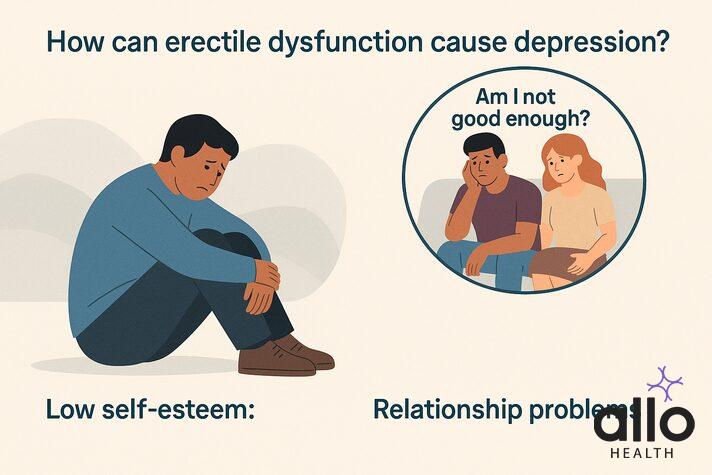
What Our Patients Are Telling Us?
At Allo Health, we have seen men struggling with both depression and ED. We’ve observed that 1 out of 6 men diagnosed with erectile dysfunction also show symptoms of depression. This clinical data comes from our 2023 survey of 2,000 men between the ages of 25 and 60 years. We noticed that:
- 40% of men reported feeling depressed when they struggled with weak erections.
- 35% of men said they didn’t feel like getting intimate due to the fear of rejection.
We also found that the earlier someone visits a doctor, the higher the chances of recovery from depression impotence.
Some of our patients have shared their journeys with us. One of them said:
“I went to the Allo Health clinic in Mumbai. The doctor there made a treatment plan for me, took therapy sessions, and within one month, I started feeling better. Not only did I feel better mentally, but my morning erections also improved. That made me realize it’s not just a physical issue, but it’s also a mental concern.”
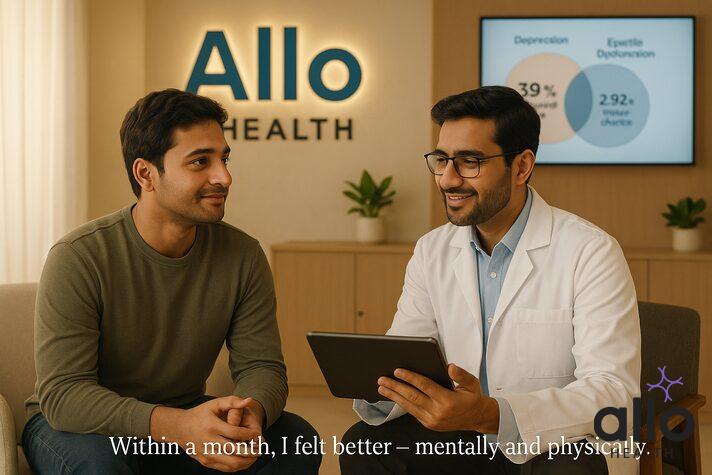
When Should You Seek Help?
Now that you know stress, anxiety, and depression can all lead to depression impotence, it’s important to be careful with how you handle them. If you’re thinking of self-medicating with antidepressant medications, you may need to stop and reconsider. Self-medication is unsafe and can also backfire. While antidepressants may improve your mood, they can also make your ED worse.
You can follow the below guidelines, but only under the supervision of a doctor. Some of them include:
Psychological Counselling and Cognitive Behavioral Therapy (CBT)
Reaching out for mental health support can be the first step toward breaking the erectile dysfunction depression cycle. Mental health professionals such as therapists or clinical psychologists can guide you through therapies like CBT. This is one of the most effective therapies for both erectile dysfunction depression [8]. CBT helps you overcome negative thinking, reduce performance anxiety, and rebuild self-image.
Medications
Always consult your doctor before taking any medication for erectile dysfunction or depression. Without medical guidance, you might end up feeling worse. Your doctor can prescribe antidepressants that do not cause ED. These drugs may involve phosphodiesterase-5 inhibitors like sildenafil citrate, which help in erectile response by improving blood flow. They can also adjust the dosage of your current medication, prescribe a different one, or create a new treatment plan tailored for you. Consulting with a healthcare professional can help you improve your quality of life.
Lifestyle Changes
Some small lifestyle changes in your daily routine can reduce the risk of both ED and depression. These include regular physical activity, getting quality sleep, practicing yoga, meditation or mindfulness, and quitting substance abuse habits like smoking or excessive alcohol consumption.
Talk therapy with partner
Talking openly with your partner may feel difficult, but talk therapy can actually reduce stress and build emotional closeness. Sometimes, supportive couples therapy is the first step to healing.
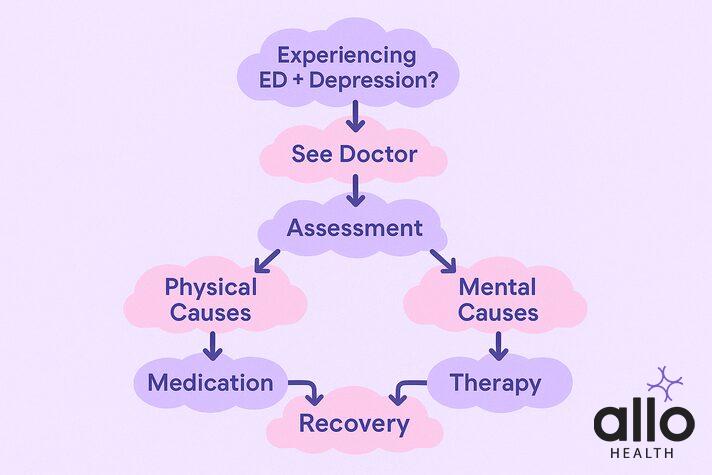
Final Takeaway: Depression and ED Are Treatable
Depression and sexual dysfunction often go hand in hand. In many cases, they co-exist. But the good news is that both are treatable, often together. Whether your ED is being caused by depression or your depression is the result of bedroom struggles, don’t ignore the signs. Seek help, ask questions, and know that you’re not alone. You do not have to suffer in silence, many men have seen improvement and felt better with the right care.
"The following blog article provides general information and insights on various topics. However, it is important to note that the information presented is not intended as professional advice in any specific field or area. The content of this blog is for general educational and informational purposes only.
Book consultation
The content should not be interpreted as endorsement, recommendation, or guarantee of any product, service, or information mentioned. Readers are solely responsible for the decisions and actions they take based on the information provided in this blog. It is essential to exercise individual judgment, critical thinking, and personal responsibility when applying or implementing any information or suggestions discussed in the blog."

